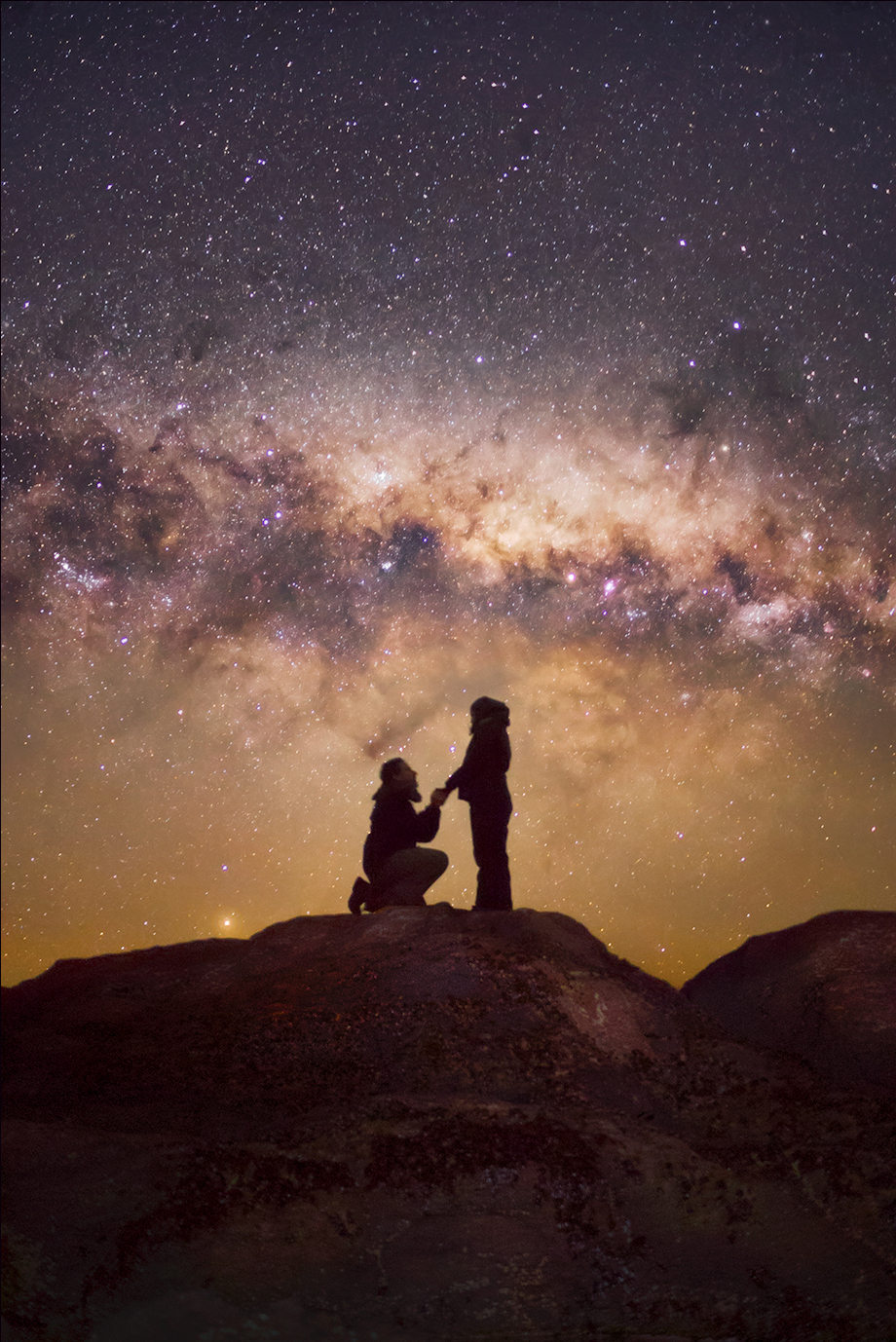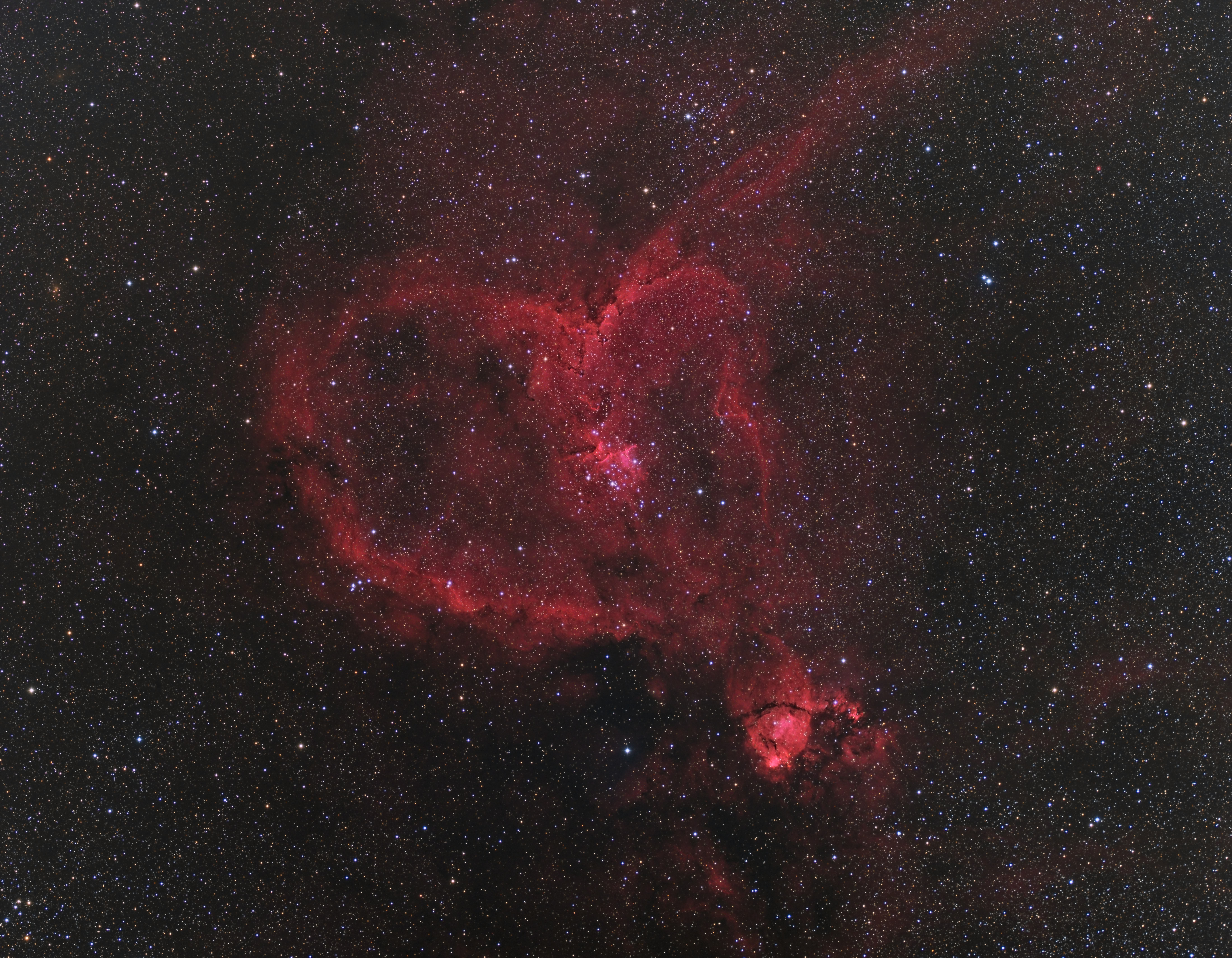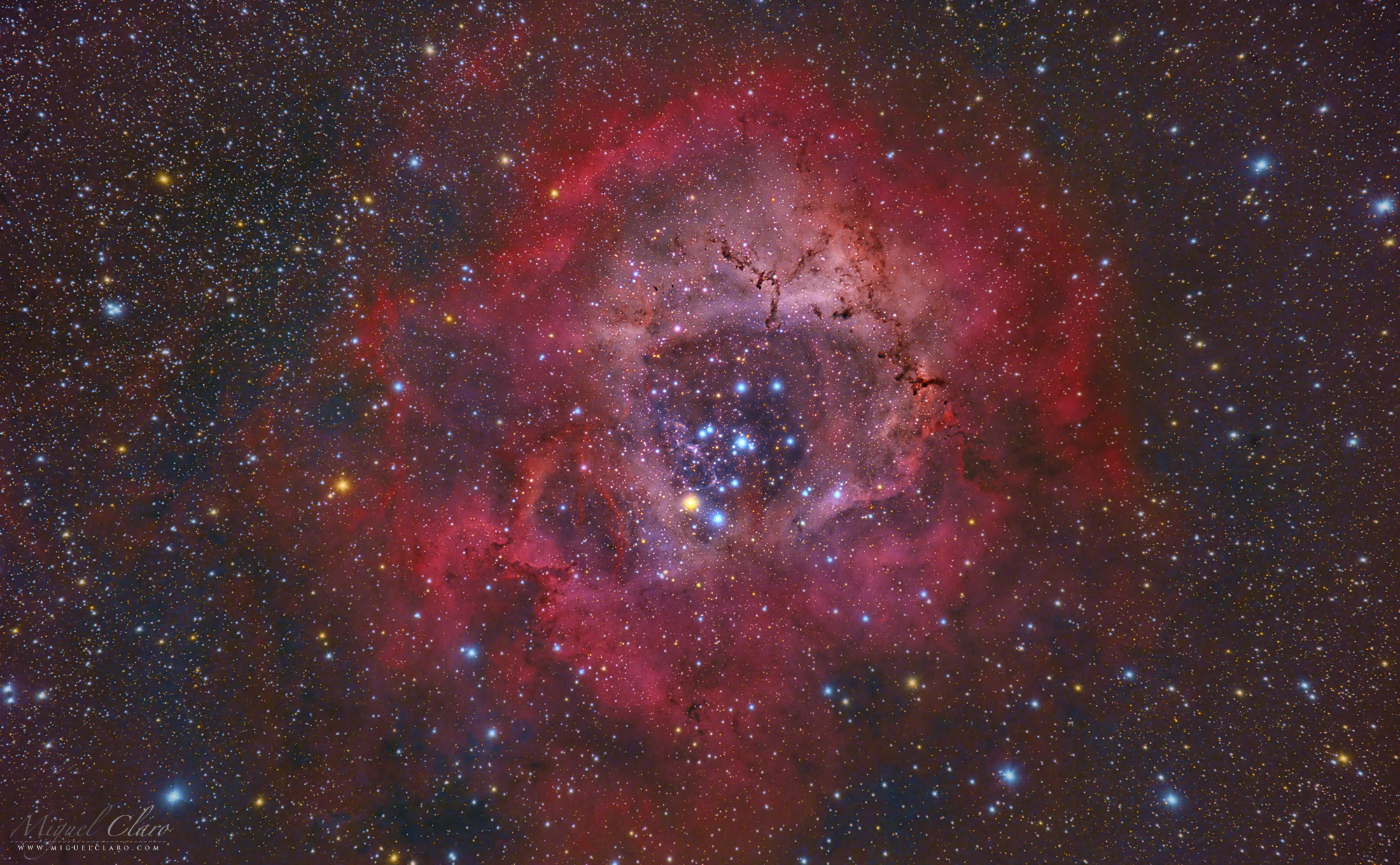Starry Valentine: A Galactic Proposal & More Romantic Astrophotography
Happy Valentine's Day … from space!
While outer space consists mostly of a cold and lonely void, it can also be a breathtaking and romantic place, with shimmering cosmic clouds shaped like hearts, flowers and rings.
From magnificent views of the Milky Way galaxy to telescope pictures of gorgeous nebulas, these images taken by astrophotographers will have you falling in love with space all over again. [Valentine's Day in Space: Cosmic Love Photos]

Sergio Montúfar, a professional astronomer and astrophotographer at the La Plata Astronomical Observatory in Argentina, nailed a stellar wedding proposal beneath the Milky Way. He brought his now-fiancé, Barby, along on a work trip to Chubut, a province in southern Argentina
"We are both very passionate about astronomy since [we were] kids, when we met," Montúfar told Space.com. "It was each other's love for the stars … that joined our hearts like colliding galaxies. So, for a special person, a special moment should be done in a very special place."
Montúfar's wedding proposal was literally picture-perfect.
And if this adorable photo of his engagement didn't melt your heart, perhaps this lovely image of the Heart Nebula will.
Get the Space.com Newsletter
Breaking space news, the latest updates on rocket launches, skywatching events and more!

Astrophotographer Ron Brecher captured this luminous, red image of NGC 896, or the Heart Nebula, a cloud of glowing interstellar gas that lies 7,500 light-years away from Earth in the constellation Cassiopeia. That little tail in the bottom right of the image is a separate cloud known as the Fishhead Nebula (IC 1795). The Heart Nebula lies close to the Soul Nebula.

Roses are red … and so is the Rosette Nebula! This rose-shaped, deep-space nebula may outshine even the most beautiful bouquets of Earth-grown flowers this Valentine's Day. Miguel Claro, a Portuguese astrophotographer, captured this deep-sky image of the floral figure from the new Cumeada Observatory in Portugal's Dark Sky Alqueva Reserve, a "starlight tourism destination" that offers some of the best stargazing conditions in the world.
Email Hanneke Weitering at hweitering@space.com or follow her @hannekescience. Follow us @Spacedotcom, Facebook and Google+. Original article on Space.com.
Join our Space Forums to keep talking space on the latest missions, night sky and more! And if you have a news tip, correction or comment, let us know at: community@space.com.

Hanneke Weitering is a multimedia journalist in the Pacific Northwest reporting on the future of aviation at FutureFlight.aero and Aviation International News and was previously the Editor for Spaceflight and Astronomy news here at Space.com. As an editor with over 10 years of experience in science journalism she has previously written for Scholastic Classroom Magazines, MedPage Today and The Joint Institute for Computational Sciences at Oak Ridge National Laboratory. After studying physics at the University of Tennessee in her hometown of Knoxville, she earned her graduate degree in Science, Health and Environmental Reporting (SHERP) from New York University. Hanneke joined the Space.com team in 2016 as a staff writer and producer, covering topics including spaceflight and astronomy. She currently lives in Seattle, home of the Space Needle, with her cat and two snakes. In her spare time, Hanneke enjoys exploring the Rocky Mountains, basking in nature and looking for dark skies to gaze at the cosmos.









